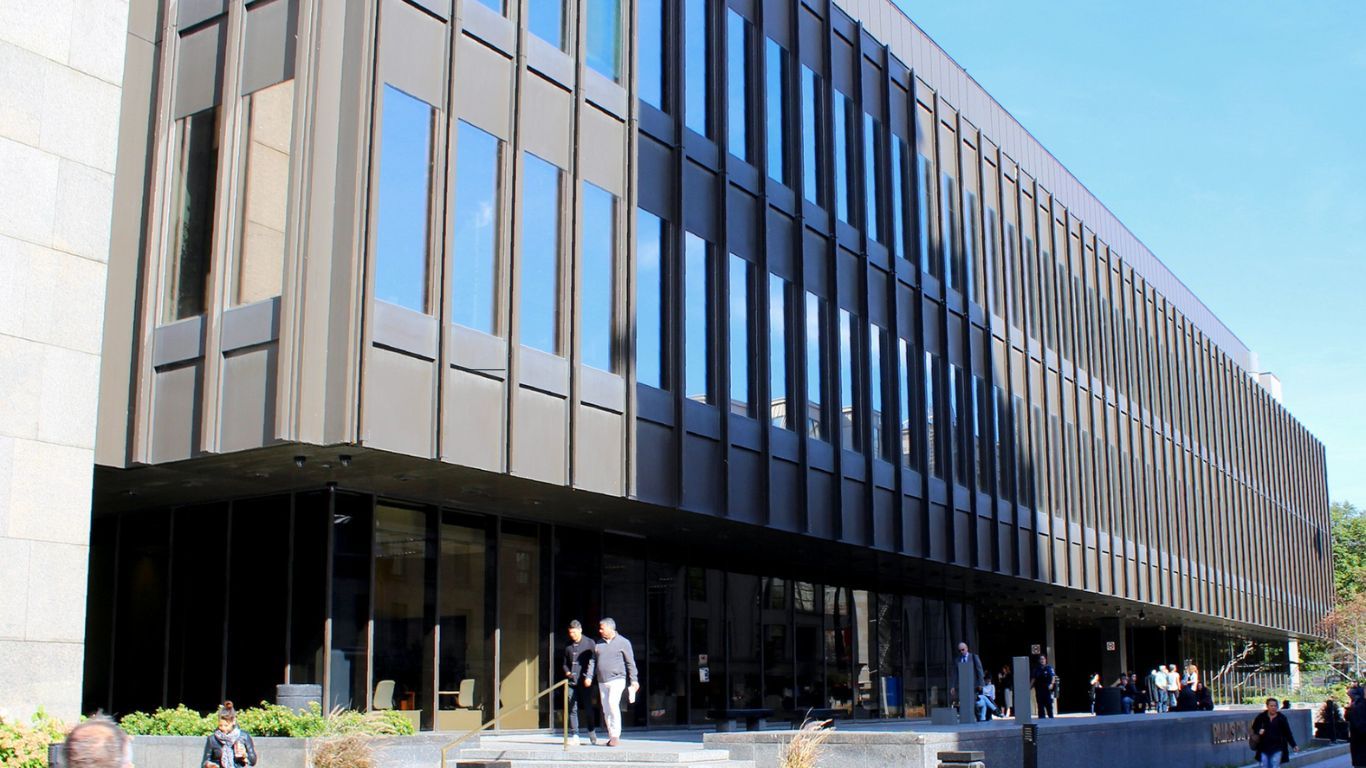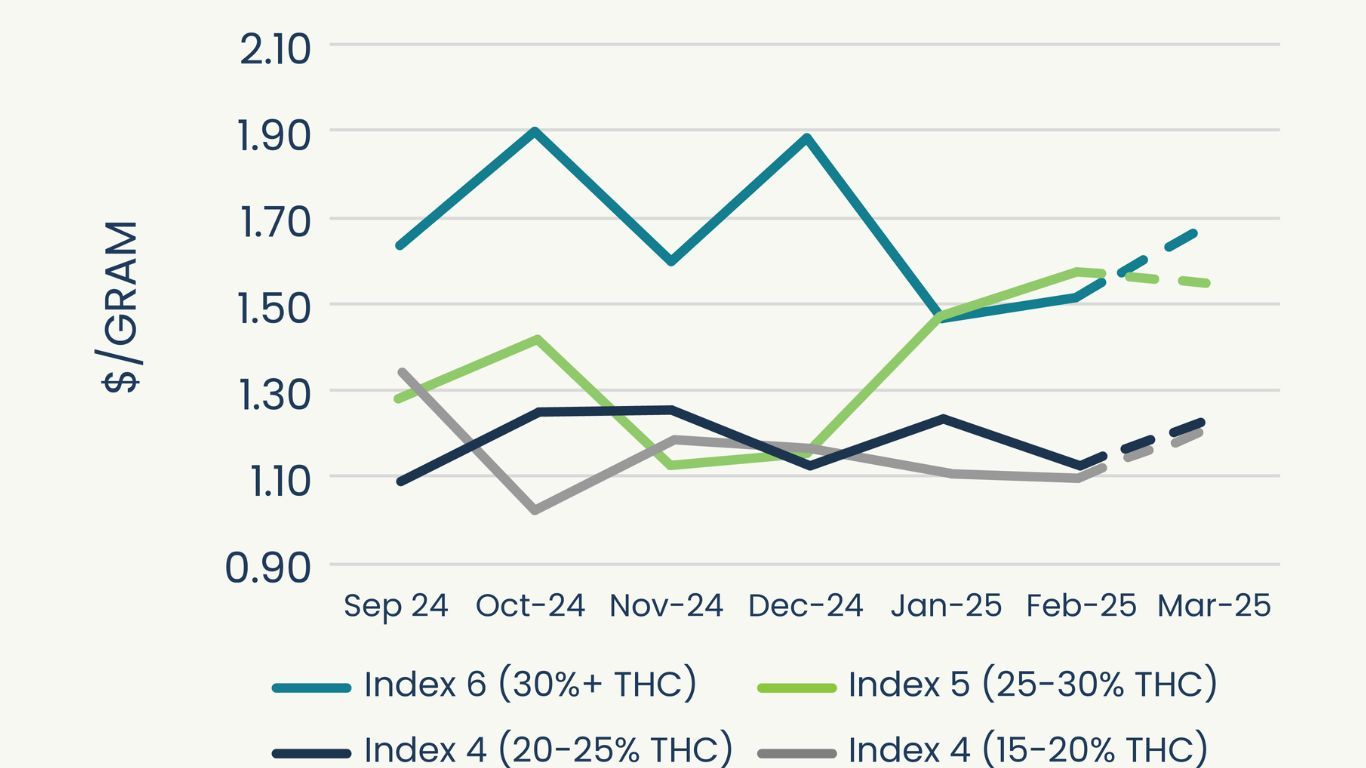
A class action lawsuit is targeting several Canadian banks that it alleges have engaged in financial discrimination against legal cannabis businesses.
The lawsuit—brought by Groupe SGF, a group of cannabis legal advisors and consultants—is suing on behalf of Gabriel Bélanger, the founder of Origami Extraction, a micro processor in Quebec. The suit names the Desjardins Federation, National Bank, Royal Bank, Bank of Montreal, TD Bank, Royal Bank (RBC), and CIBC.
The class action includes all individuals or corporations that, directly or indirectly, do business with any of the defendant banks and who have been involved in the legal cannabis industry since October 17th, 2018.
Maxime Guérin, a lawyer with Groupe SGF who is representing the case, says the issue of banks treating legal cannabis businesses unfairly has been damaging to the development of the legal industry.
“For far too long, Canadian banks have treated the cannabis industry like pariahs, as if it was still completely illegal,” says Guérin. “By doing so, they are depriving the Canadian—but especially the local—economy of developing a promising market.”
“It was necessary, almost 5 years after legalization and discussions between the industry and the banks, that we took this step. Enough is enough, the legal cannabis industry and its players are 100% legal and should not be treated as criminals anymore, especially in a corporate environment such as a bank.”
The lawsuit contends that these lending institutions have taken “reprehensible and discriminatory actions” towards numerous individuals and businesses who have been operating within Canada’s legal, regulated cannabis market.
“This class action covers anyone that has a relation with legal cannabis. It covers anyone that is directly or indirectly part of the industry, either it be the bud tender in Ontario, the LP in Saskatchewan, or the hydroponic shop in Québec that sells fertilizers.”
Maxime Guérin, a lawyer with Groupe SGF
The lawsuit contends that prior to October 18, 2018, the legal medical cannabis industry still faced numerous challenges to accessing banks, but options remained available. This changed, it continues, after cannabis was fully legalized in 2018, though with no clear policy and many banks often refusing to open bank accounts, supply loans, or do any kind of business with some cannabis business owners while continuing to do business with others.
In the instance of Gabriel Bélanger, the micro processor who is pursuing this issue, he opened a bank account registered to his own cannabis consulting agency in 2020 with the National Bank of Canada.
Then, in 2022, after Bélanger incorporated his company Origami Extraction Inc, he received a letter from National Bank telling him that the account of Origami Extraction would be closed on October 11, 2022. Bélanger contends he only discovered his accounts had been closed when he checked his bank account.
Over time, Bélanger then says he was also refused by Desjardins and CIBC, and not provided a clear explanation of why.
Then, on December 2, 2022, the lawsuit says a National Bank account manager told Bélanger that his two bank accounts, as well as any linked credit cards, were closed simply because the businesses were connected to the cannabis industry.
Bélanger was initially able to open a bank account with the Royal Bank of Canada between October and November 2022, but was then informed in December that the accounts were closed due to an “internal policy”.
Bélanger says he also attempted to open an account with Desjardins in 2020 connected to another cannabis company in Quebec but was refused.
This inability to secure permanent banking caused Bélanger undue hardship, contends the lawsuit, and forced him to use his personal account for business, further putting himself at financial risk. With his micro processing licence, he says he has a minimum annual turnover rate of one million dollars, highlighting the challenge of operating this kind of business without a bank account.
The lawsuit seeks compensation not only for Bélanger, but any others who have had similar experiences in Canada, says Guérin.
“This class action covers anyone that has a relation with legal cannabis. It covers anyone that is directly or indirectly part of the industry, either it be the budtender in Ontario, the LP in Saskatchewan or the hydroponic shop in Québec that sells fertilizers.”
More information on the class action can be found here.
Many cannabis companies in Canada have long found it difficult to find and keep a bank or other lending institution, or even to maintain an account.
Challenges with cannabis businesses in Canada getting and keeping relationships with lending institutions are well known, with many banks unwilling to do business with what they see as an uncertain industry.
Some have turned to smaller lending institutions like credit unions, some of which have leaned into the gap left by larger banks.











